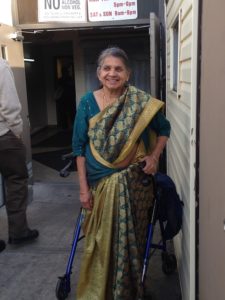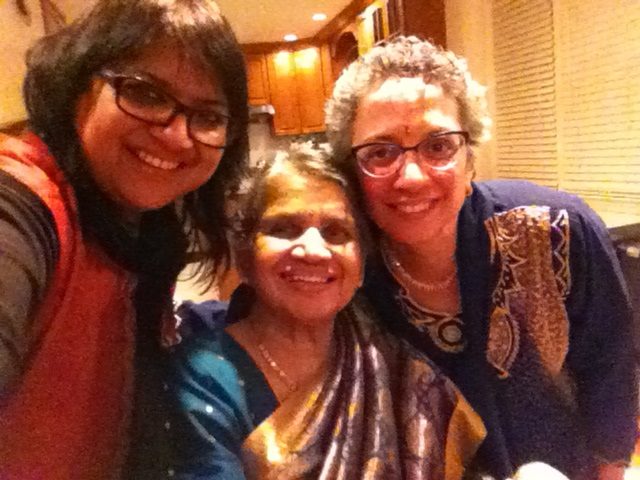We’ve all seen the pictures of the rich, powerful white men signing the repeal of Obamacare, despite the fact that most people are happy with their healthcare and no one seems to have a plan for what comes next.
For my wife, Mala, and me, this decision and the ensuing uncertainty is literally a matter of life or death. We’re middle-aged, self-employed elder caregivers. We’re not alone. Repealing the ACA puts people like us in a hopeless situation. As caregivers, we can’t take the full-time jobs that provide health care (even supposing they’d hire us so easily). But as self-employed people, we need access to affordable healthcare, or else we are one minor emergency away from financial devastation.
The fact that Mala and I have health insurance now at all given pre-ACA pre-existing condition restrictions, and that the healthcare is both decent and affordable, is wholly due to President Obama’s efforts and the ACA. It will destroy our lives if those “pro-life” men take the ACA away from us.
It will also result in crumbling our fragile family infrastructure. If something happens to Mala, there goes the entire household: it’ll incapacitate her mom. It’ll throw her sisters’ lives into turmoil. It’ll throw her sisters’ families’ lives into upheaval. It’ll strain the cohesion and rupture the wellbeing of our communities by creating a need for various community members to step in and take on various roles and responsibilities that our household could no longer manage.
And for what?

My mother-in-law, Picha
Mala’s mother, Picha, fell on the cement stoop outside our house on Sunday, January 22nd, and was hospitalized from that Tuesday through Saturday. Her stay at the hospital coincided with the first week of the presidency, so the TVs were perpetually tuned to the steady onslaught of Executive Orders.
Obviously, we were all having lots of reactions, but I’ll zoom in on one of mine specifically related to the Executive Order permitting everyone with governmental power at the federal or state level to back off on the ACA in whatever way they felt like doing.
When this Executive Order was signed, I was in the hospital room with Mala, seeing Picha bedridden and hearing the TV in the background. And all I could think was, what will Picha do if Mala isn’t covered through the ACA anymore? What if Mala is forced off of health insurance, and even the smallest medical difficulty hits her? A broken wrist, say, or the flu, let alone a cancer diagnosis. Haha — what am I thinking? No need to worry about a cancer diagnosis because we couldn’t afford the doctor’s visit to get the diagnosis.
But no, seriously. What will we do?

Mala, Picha, and Vega
We remember a time when someone with a ‘pre-existing condition’ couldn’t get health insurance for any price. When that person teeters on the edge of financial ruin on a daily basis. When that person does whatever it takes, in order to procure health insurance for themselves. When that person might, say, get a family member to claim them as an ‘employee’ or ‘dependent’ so that they can be covered by the family member’s company. We do not want to go back. We will not go back to a time when people like my wife, with a chronic illness, will hit their lifetime maximum and then either pay out of pocket or die. When young people barely able to cobble together a living are kicked off their parents’ insurance. Our lives and health are just as valuable as the lives and health of rich white men, even though they don’t seem to think so.
I admit that for me, this is highly personal. I mean, frankly, I don’t want to be sentenced to a long, painful death because I was denied affordable health care. But I also don’t want Mala, or my mother-in-law, or my parents, or my niece, or my extended family, or my friends, or my community to suffer because of something so effortlessly avoidable as simply maintaining the life- and health-saving act that is Obamacare. #thanksobama
The opinions expressed in this article are those of the author and do not necessarily reflect those of the Diverse Elders Coalition.

